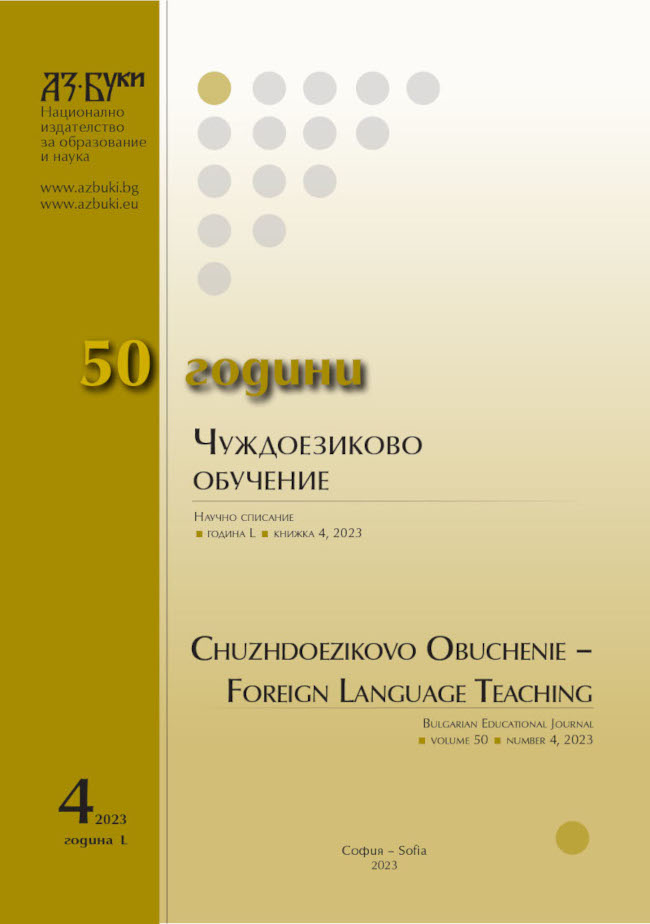Проницаемостта на формите на конклузива в съвременния български език
The Penetrability of Conclusive Forms in Modern Bulgarian Language
Author(s): Krasimira AleksovaSubject(s): Social Sciences, Language and Literature Studies, Education, Applied Linguistics, Language acquisition, Cognitive linguistics, Vocational Education, Adult Education, Higher Education , State/Government and Education, Inclusive Education / Inclusion, Stylistics, Distance learning / e-learning, Pedagogy
Published by: Национално издателство за образование и наука „Аз-буки“
Keywords: penetrability; conclusive; compound verb forms
Summary/Abstract: The article examines the permeability of composite conclusive forms in the active and passive voice in modern Bulgarian. The author distinguishes two cases: permeability from short dative and accusative personal pronouns and from the particle “se” with a pronominal origin, as well as permeability from the particle “li” and other particles, inserted remarks, adverbs, and simple sentences. In addition is provided an overview of specific and generalised models of permeability, supported by examples from language corpora and the internet. The conclusions highlight both the common and unique features of the permeability of composite verb forms. To substantiate this, the author relies on examples obtained from language corpora and the internet, encompassing short personal pronouns, adverbs, particles like “se” and “li”, inserts, simple sentences, as well as composite forms where permeability is not feasible. Additionally, identified are several cases where penetration in two places from the same linguistic elements is possible. The presented examples and models, along with the resulting conclusions, prove that the process of grammaticalisation at a formal level is not fully accomplished in the Bulgarian verb paradigm. This is due to the fact that composite forms are permeable to other elements. The author applies K. Lehmann's parameter of grammaticalization to demonstrate that, as the process of grammaticalisation progresses, both the ability to rearrange elements and the permeability from other linguistic units decreases.
Journal: Чуждоезиково обучение
- Issue Year: 50/2023
- Issue No: 4
- Page Range: 347-358
- Page Count: 11
- Language: Bulgarian
- Content File-PDF

